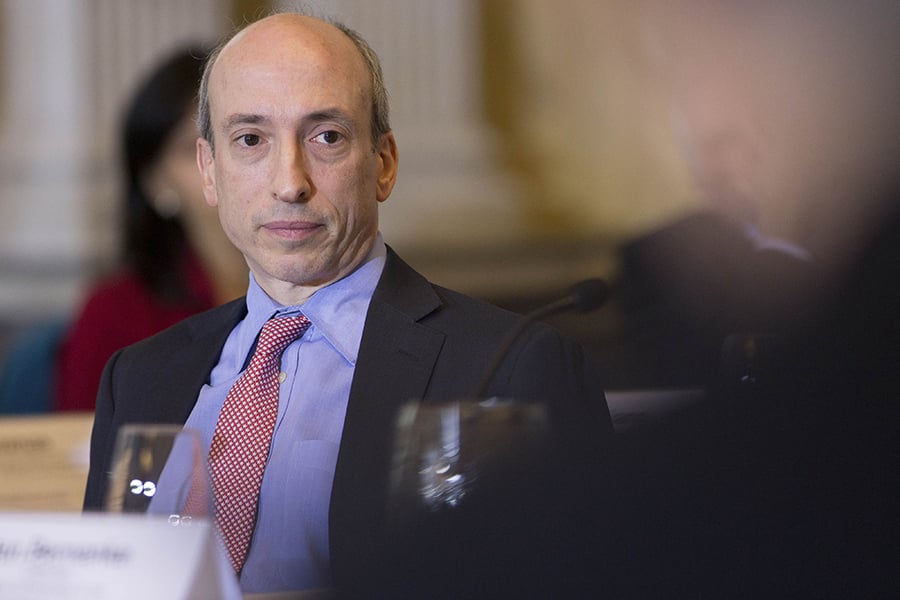

Securities and Exchange Commission Chairman Gary Gensler laid out a laundry list of concerns related to special purpose acquisition companies, delivering his strongest signal yet that he’ll push for much tougher rules for the blank-check firms. Gensler, who’s repeatedly raised issues with SPACs since taking over in April, gave a road map Thursday for areas where the regulator may need to step up regulation.
He said he’s concerned that retail investors putting money in a firm taken public by merging with a blank-check company may be at a disadvantage compared with backing a traditional initial public offering.
“Currently, I believe the investing public may not be getting like protections between traditional IPOs and SPACs,” Gensler said in remarks prepared for the Healthy Markets Association, which represents institutional investors. “Further, are we mitigating the information asymmetries, fraud and conflicts as best we can?”
For more than a year, the SEC has been ringing alarm bells over disclosures around SPACs, which Gensler said now make up more than 60% of U.S. IPOs. The agency has said that it plans to propose new regulations to deal with the booming area as soon as next April, and SEC attorneys have also been stepping up scrutiny of such deals, with Lucid Group Inc. and Digital World Acquisition Corp., which is merging with former President Donald Trump’s media company, disclosing this week that they had received information requests.
In his comments, Gensler said areas of particular concern that he’s asked staff to look into include:

New joint research by T. Rowe Price, MIT, and Stanford University finds more diverse asset allocations among older participants.

With its asset pipeline bursting past $13 billion, Farther is looking to build more momentum with three new managing directors.

A Department of Labor proposal to scrap a regulatory provision under ERISA could create uncertainty for fiduciaries, the trade association argues.

"We continue to feel confident about our ability to capture 90%," LPL CEO Rich Steinmeier told analysts during the firm's 2nd quarter earnings call.

It's the mega-RIA firm's third $1B+ acquisition in just three months.
Orion's Tom Wilson on delivering coordinated, high-touch service in a world where returns alone no longer set you apart.
Barely a decade old, registered index-linked annuities have quickly surged in popularity, thanks to their unique blend of protection and growth potential—an appealing option for investors looking to chart a steadier course through today's choppy market waters, says Myles Lambert, Brighthouse Financial.
